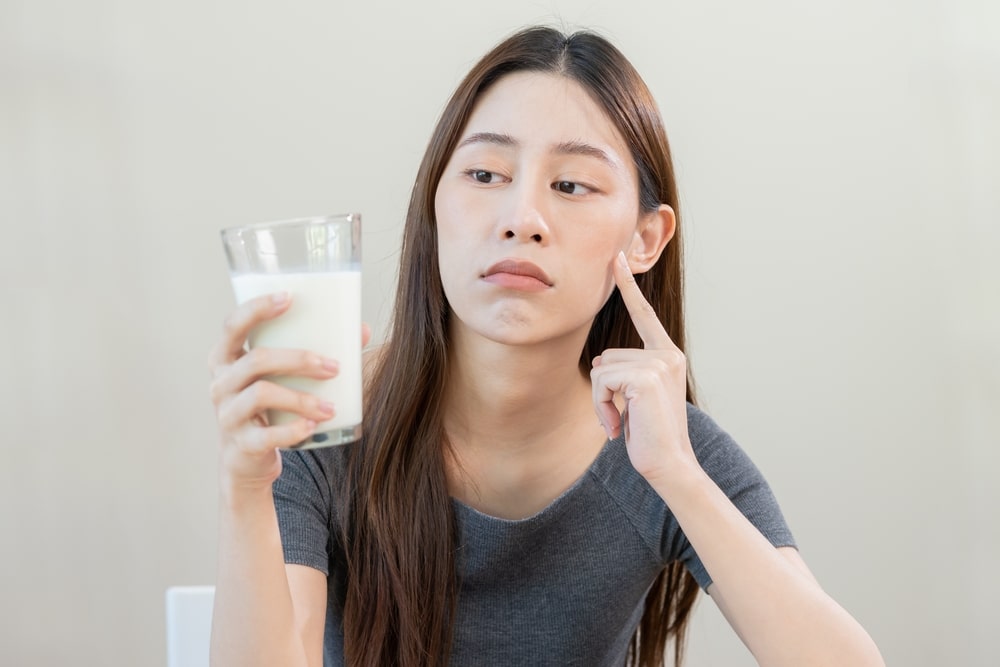Understanding Low Estrogen and Its Impact
Estrogen levels decrease as we age along with various other hormones and enzymes like growth hormone, melatonin and testosterone in men. People who have atypical sexual development may experience lower levels of estrogen at a younger age.
There are some cases when estrogen levels are consistently low, like going through the phase of menopause. However, having low estrogen before menopause can be a sign of an underlying condition that can affect sexual development and fertility, too. In this article, we’ll delve into common and weird symptoms of low estrogen and natural ways to increase and maintain normal estrogen levels.
What is Estrogen and Its Role in the Body?
Estrogen is a sex hormone associated with female sexual and reproductive development. It initiates secondary sexual characteristics such as breast development and pubic, leg and armpit hair. It contributes to bone and cardiovascular health, bodily processes like the menstrual cycle and brain (cognitive functions).
Why Do Estrogen Levels Decline?
When you get older, a decrease in estrogen levels occurs naturally. That’s why aging is the most common cause of low estrogen. If low levels of estrogen are not related to menopause, it may be a sign of an underlying condition. The reasons for low estrogen along with age are:
- Aging: Menopause is a natural phase of life between 45 to 55 years for women. During this phase, estradiol, the major female sex hormone produced mainly in the ovaries, switches to estrone. Estrone is a weak, minor female hormone produced mainly in the fat in the body.
- Eating disorders: Eating disorders that involve food restriction such as bulimia and anorexia, can cause nutrient deficiency and hormonal imbalance.
- Hypothalamic amenorrhea: Things that can cause stress in the body such as malnutrition and excessive exercise, can cause the development of hypothalamic amenorrhea. This is a condition in which the brain doesn’t release enough of the hormone that stimulates estrogen production in the ovaries. Mainly seen in female athletes or during extreme diets, it causes periods to stop.
- Autoimmune diseases & genetic disorders: Sjögren’s syndrome, Turner syndrome and Fragile X syndrome both cause low estrogen.
Common Symptoms of Low Estrogen
Symptoms of low estrogen mainly occur during menopause and postmenopause. Still, these symptoms can change based on what’s causing low estrogen levels. Common symptoms of low estrogen include:
- Dry and itchy skin.
- Tender breasts.
- Weak joints and bones.
- Concentration problems.
- Feeling moody and irritated.
- Vaginal dryness.
- Hot flashes and night sweats.
- Irregular periods or no periods (amenorrhea).
- Weight gain, especially abdominal weight.
- Headaches before or during your period.
- Decreased sex drive and painful intercourse.
- Feeling fatigued and sleep disturbances.

Unveiling the Weird Symptoms of Low Estrogen
Unexpected Physical Signs
Hair Changes or Loss
One essential element for hair health is a natural oil our body produces called sebum. Estrogen is the primary booster of sebum, and low estrogen can lead to changes in hair texture, density or thickness. Hair loss is common during pregnancy but also during perimenopause, when estrogen levels start to decrease. Low estrogen levels can also cause dryness, dullness in hair texture, and breakage.
Sleep Disturbances and Fatigue
Low estrogen causes hot flashes and night sweats that create discomfort during nighttime. Once wake up, the anxiety they create can make it harder to fall back asleep. As a result of disturbed sleep, fatigue can occur during the daytime.
Emotional and Mental Signs
Brainfog
Estradiol, the major female sex hormone produced mainly in the ovaries, is linked with how the brain functions. That’s why, during menopause, where estrogen levels drop, many women experience long-term brain fog.
Forgetfullness & Memory Problems
Hormonal changes such as a decrease in estrogen levels can cause difficulties in concentration and affect mental sharpness. Some studies have shown that low estrogen can affect brain performance and cause memory loss for some women.
Restoring Hormonal Balance and Well-being
Many lifestyle-related reasons can cause low estrogens, such as lack of nutrition, environmental toxins and chronic stress. Furthermore, excessive alcohol consumption and toxin accumulation can mimic hormones, contributing to hormonal imbalance.
Our body has a natural detoxification ability. However, this ability can weaken or be disturbed by time. That’s why cleansing the liver and activating the lymphatic system, reducing stress and losing excess weight can prevent hormonal blockages and decrease estrogen.
You can consider joining a wellness program under expert guidance to achieve physical, mental and emotional detoxification. This way, you can nourish your body with essential nutrients while removing toxins and free radicals. With a personalized master cleanse, you can prevent, manage and reduce hormonal problems and achieve vitality.
FAQs About Symptoms of Low Estrogen
How do you feel when your estrogen is low?
You may experience various physical and emotional symptoms such as hot flashes, dry skin, hair loss, vaginal dryness or abdominal weight gain.
What causes estrogen to drop?
Natural causes include perimenopause and menapause. Other reasons that can cause estrogen to drop include excessive exercise and eating disorders.
How does the woman feel when estrogen is high?
Having high levels of estrogen can cause mood swings, weight gain and PMS in females.
How can I raise my estrogen levels quickly?
If you want to support hormonal health and balance, cleansing your body to prevent hormonal blockages, losing excess weight, eating a nutritious diet, and exercising regularly may help.
How do I know if I need more estrogen?
If you notice having symptoms of low estrogen, consider getting tested to have medical supervision.





